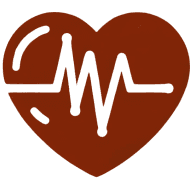How Has a Patient's Recovery Post-Cardiac Surgery Influenced Your Practice?
Navigating the journey of recovery after cardiac surgery can be transformative for both patients and medical professionals. This article delves into the nuanced strategies that shape exceptional care, with insights drawn directly from experts in the field. Discover the key principles that guide personalized rehabilitation and the profound impact they have on refining medical practice.
- Set Personal Goals for Motivation
- Align Recovery Plans with Personal Values
- Encourage Early Mobilization
- Prioritize Communication and Emotional Support
- Support Structured Cardiac Rehabilitation
- Create Individualized Care Plans
- Adopt a Holistic Approach to Care
Set Personal Goals for Motivation
One experience that deeply influenced my practice involved a 62-year-old patient recovering from valve replacement surgery. While the surgery was successful, he struggled with post-operative depression and lacked motivation to engage in rehabilitation. He felt disconnected from his progress and unsure about how to move forward.
To help, I encouraged him to set a personal goal that was meaningful to him. He mentioned wanting to be able to play with his grandchildren without getting exhausted. We used that as motivation, breaking down his recovery into small steps-starting with short walks and gradually increasing his activity level. Each milestone, no matter how small, was celebrated to keep him encouraged.
Over time, he not only regained his strength but also became more positive and engaged in his care. Seeing his joy when he finally achieved his goal of playing with his grandchildren was a powerful reminder of the emotional side of recovery.
This experience taught me that recovery isn't just physical-it's emotional too. Connecting care plans to what truly matters to patients helps them stay motivated and leads to better outcomes. It's something I now prioritize with every patient I work with.

Align Recovery Plans with Personal Values
One memorable experience involved a patient who struggled with motivation during cardiac rehab after bypass surgery. We shifted the focus from standard goals to activities they personally valued, like regaining strength to play with their grandchildren. By tailoring the recovery plan to something meaningful, their engagement and progress improved dramatically. This taught me the importance of aligning medical goals with personal motivations. Now, I make it a point to ask every post-op patient about their "why" for recovery—it builds trust, fosters compliance, and leads to better outcomes overall.

Encourage Early Mobilization
The recovery of a patient after cardiac surgery has shown the power of early mobilization. Getting patients to slowly move around soon after their surgery is crucial. It helps in speeding up their recovery process.
Early mobilization also lessens the chances of complications like blood clots. Families and caregivers are encouraged to support light physical activity as soon as it's safe. Let’s focus on integrating early movement into recovery plans to boost patient outcomes.
Prioritize Communication and Emotional Support
Observing patient recovery after cardiac surgery has highlighted the value of communication and emotional support. Patients often feel scared and uncertain after such a major surgery. Providing comfort and information regularly can significantly ease their worries.
Emotional support also promotes better healing and adherence to medical advice. Encouraging a strong support system therefore contributes to smoother recoveries. Let’s prioritize open communication and emotional support in our care routines.
Support Structured Cardiac Rehabilitation
The significance of cardiac rehabilitation has been underscored through patient recovery outcomes. Structured rehabilitation programs are essential in helping patients regain strength and confidence. These programs not only improve physical health but also boost mental well-being.
They guide patients through tailored exercises and lifestyle changes necessary for heart health. Supporting cardiac rehab can make a big difference in long-term recovery. Let’s continue endorsing rehabilitation programs for comprehensive patient recovery.
Create Individualized Care Plans
Individualized care plans have proven to be vital in patient recovery post-cardiac surgery. No two patients are alike, and their care should reflect this. Tailored plans address specific needs, whether it be related to diet, medication, or physical activity.
Personalized care boosts recovery rates and patient satisfaction. It’s crucial to assess each patient’s unique needs and adjust treatments accordingly. Let’s commit to creating more individualized care plans for optimal recovery.
Adopt a Holistic Approach to Care
Adopting a holistic approach to patient care has been reinforced through the recovery of cardiac surgery patients. This approach considers not just the physical, but also the emotional and social aspects of healing. A holistic method supports the patient’s overall well-being.
It involves coordinating with various healthcare professionals to provide comprehensive care. A commitment to holistic care can foster better recovery outcomes. Let’s work towards embracing this all-encompassing approach in our practices.

